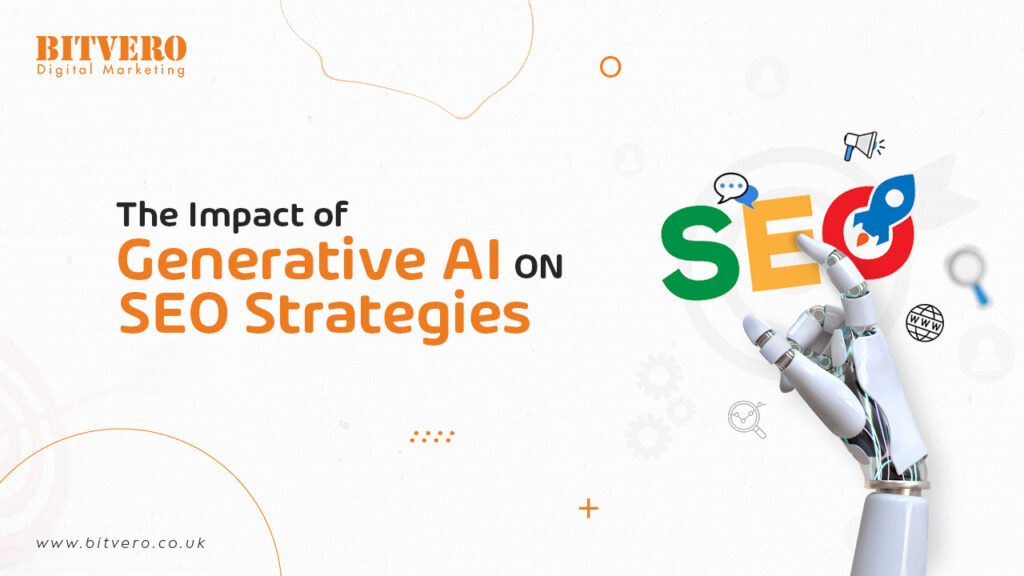The Impact of Generative AI on SEO Strategies

AI has impacted SEO both negatively and positively.
Generative AI plays the biggest role in this. Whether Google quick generative snapshots or generated content via ChatGPT or other AI tools, all have affected SEO in their own way.
Because AI interfered in the SEO field, SEO strategies also had to be adapted accordingly—some to deal with AI dominance in search ranking while others to take advantage of AI.
As said, AI’s impact on SEO has two sides—negative and positive. If we categorise these two coins further, from creating content to becoming the reason for content penalisation by search engines for being unworthy and unreliable quickly generated content, AI has changed the SEO scenario in many ways. Let’s see that impact through category breakdowns.
AI-generated content in SEO
Presently, there are innumerable AI tools which make it easy to create content in seconds. With such tools, people create content for blog posts, social media, etc., not for written content but from images to videos and much more.
It all seems to make content creation much easier and quick. But that is the one side of the coin.
The same tools also negatively impacted SEO as search engines started to act against so-called “not meant to help the users” content.
Search engines, especially Google, are smart enough to catch those manipulative tactics, and that is why it reminded SEO experts of helpful content criteria and also introduced a new ranking factor called EEAT.
With Google’s actions, SEO strategies are adapting as content marketers give more heed to EEAT qualities in their content creation, even if that is partly coming from AI.
Related article: Can AI Content Rank on Google?
AI-generated content in Search Results
When Google has always been conscious about the information its users get and has taken many steps to detect or combat AI or useless content through various ranking factors, AI systems like SpamBrain, core updates EEAT or SynthID, a watermark it recently added a generative AI snapshot to its SERPs.
This Google AI model is called SGE. It will now impact SEO strategies both favourably and unfavourably.
The first is that it has shifted organic indexed pages a bit downwards on SERPs—bad news for SEO experts. On the other hand, as this SGE gives reference links of website-indexed pages in its generated snapshot, content marketers are decoding factors that can make their web pages appear in such snapshots, so they adapt SEO strategies accordingly.
Read also: How to use AI tools to improve SEO
AI’s impact on Keywords
AI makes voice search possible, which means more conversation search queries are in place now. Conversational queries mean long-tail keywords. As this has created long tail keywords, a more emerging trend, it impacts SEO strategies if it is about voice search optimisation; search marketers now will give enough weightage to long-term keywords.
Read also: The Rise of voice search and its impact on SEO
End note:
Recently, some claimed that SEO would be dead soon, but Google Analyst Gary Illyes denied this.
So, when it is clear that AI is getting stronger in the SEO field, SEO strategies have to be adapted accordingly. Though it will not completely eradicate SEO from web searches, it will surely impact SEO significantly, both in good and bad ways. So, the only tip to avoid any mismanagement in this scenario is to keep updated on AI and SEO trends so that you can prepare your strategies accordingly.
For the latest information on AI and SEO trends, you can subscribe to our blog. Here, we share information articles.
Also, if you are looking for an SEO agency in London, you can get in touch with us. Thank you!
